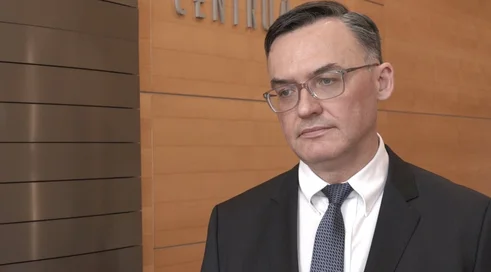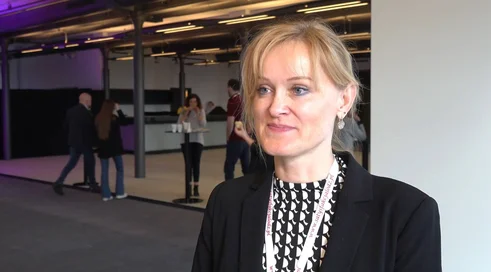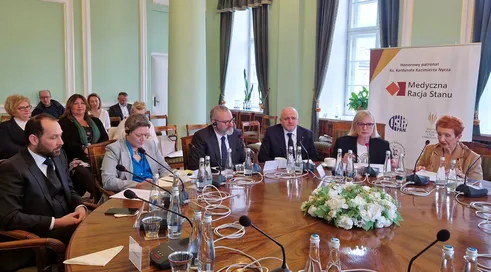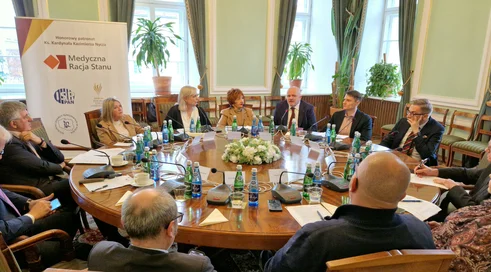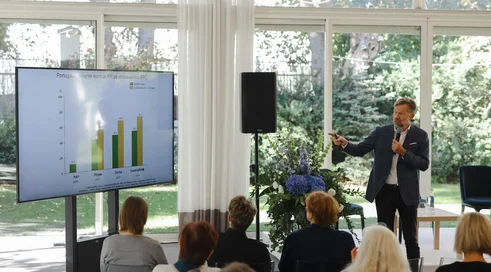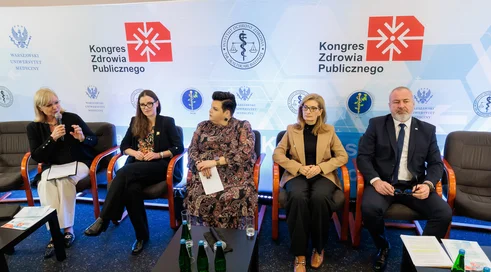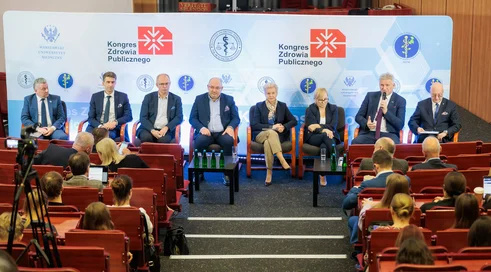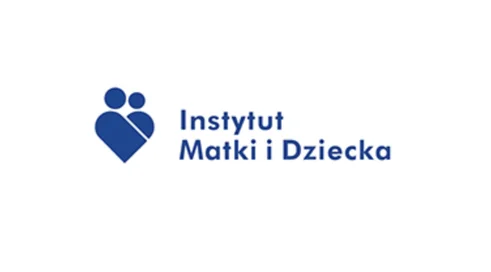The Medical Rationale of State has been supporting the improvement of the situation of patients with rare diseases for several years. In 2021, the Plan for Rare Diseases 2021-2023 was adopted by the Council of Ministers, which provides for the establishment of national reference centers, identified for a selected rare disease or group of such diseases, which will play a key role in integrating care, as well as expert centers working together. Access to diagnostics - including molecular diagnostics - is to be improved. In addition, medical registries for individual rare diseases, an information platform and a rare disease patient passport are to be established. Approximately PLN 130 million has been allocated for the implementation of the Plan for Rare Diseases.
Diagnostics key to diagnosis
Prof. Anna Latos-Bieleńska, national consultant in clinical genetics, spoke about the role of genetic diagnostics, which can shorten the diagnostic odyssey and allow patients' procreative plans to be realized. She informed that at the end of this year, modern methods of genetic diagnosis will be introduced into the basket of guaranteed services, and within three months there will be a new specialty - genetic nurse, thanks to the work of which a geneticist will be able to receive twice as many patients. Work on a specialization program in molecular genetics is also nearing completion. She pointed out that the law on genetic testing is lacking.
Prof. Krystyna Chrzanowska, who heads the Department of Medical Genetics and the Genetic Outpatient Clinic of the "Pomnik-CZD" Institute, pointed out the difficult access to specialists. In the field of clinical genetics, we have 150 specialists nationwide, of which 1/3 are already retired. - Therefore, it is necessary to encourage doctors to choose this specialty. We will also strive to establish a network of expert centers in Poland with staff of the highest qualifications. They will provide guidance for the implementation of certain sentences in facilities closer to the patient's residence," she informed.
Each new one is a breakthrough
As Medical Rationale expert Dr. Jakub Gierczynski stressed, in rare diseases each new drug is a breakthrough expected by patients and clinicians.
According to the Health Ministry, 115 new molecules were reimbursed in 2022, including 37 in rare diseases, and by July 2023, 31 new rare disease molecules had been reimbursed out of a total of 97 new molecules.
As Stanislaw Maćkowiak, president of the Federation of Polish Patients, pointed out, patients with rare diseases are very positive about the operation of the Medical Fund, to which PLN 4.2 billion is allocated annually, including PLN 720 million for reimbursement of drugs for rare diseases and oncology. I hope this trend will continue," he pointed out.
Prof. Anna Kostera-Pruszczyk, who heads the Department of Neurology at WUM, spoke about the multidisciplinary care of patients with rare diseases. She thanked the possibility of dispensing some drugs available in drug programs not only in the hospital setting. She pointed out the problem of patients transitioning from pediatric to adult care.
Content locked
To gain access to the complete English section of the Medexpress.pl, kindly reach out to us at english@medexpress.pl.




